News
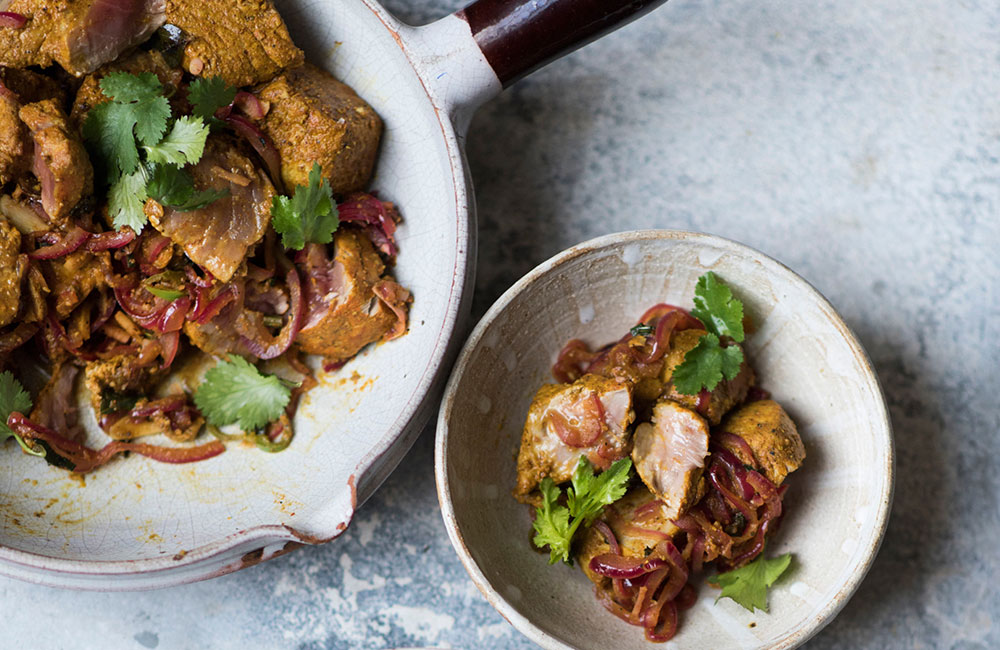
Can't afford to jet off for some winter sun? A Sri Lankan curry should hit the spot instead !
Too often, the cuisines of South Asia are lumped into one pot and blandly labelled 'curry'. The nuances between Keralan and Nepalese, Bangladeshi and Pakistani food are largely ignored - especially if your only contact with them is via your local takeaway.
Until recently, Sri Lankan food was similarly neglected, but UK chef Emily Dobbs is single-handedly trying to raise its profile. With an interest in fresh, seasonal dishes, she wants to "remove the stigma that curries have to be greasy, oily and a takeaway food".
"I often have a curry with scrambled eggs and salad; they can be really light and really colourful," she enthuses.
It's time we see Sri Lankan food as a distinct cuisine

Emily made her name whipping up hoppers, selling them from her one-man market stall in south London. "Egg hoppers will become as recognisable as eggs Benedict," she says, adamant. She reckons that so far, the flavours of Sri Lanka - think turmeric, cinnamon and tamarind - have been prevented from travelling further because of the country's civil war, but that's set to change.
"People ask me why I cook Sri Lankan food, and it's because I like it," explains Emily, who started visiting her uncle in the country as a child. "The first time I ever tried avocado, it was in a sweet Sri Lankan dessert. We ate with our hands, and ate things like shark curry - everything was so exotic and exciting."
It's okay to tweak and develop traditional recipes
However, don't pick up Weligama expecting traditional recipes that have been handed down the generations. "You wouldn't get food like this in Sri Lanka - I take classic Sri Lankan recipes and British recipes and modernise them," says Emily.
By 'modernise', she means lightening and brightening dishes, and, where possible, swapping ingredients for ones you can actually find in the UK - for instance, you can't get "beetroot the size of my head" here, nor "this amazing buffalo curd yoghurt" that Emily loves, which is kept in clay terracotta pots and left out all day in the sun: "It's just really satisfying to eat."
Emily, who eventually trained at Ballymaloe Cookery School, began cooking in her early 20s, after studying for an art degree in Manchester. To tackle artist's block, she went travelling and wound up cooking to support herself. She made her first curry while working with a "hillbilly" on a ranch in Wyoming. "He would just let me cook anything," she remembers. "Thursday was my night and I'd cook curries. My granny, who's 86 and once lived in Delhi, she'd email me recipes." The recipe for the first curry she attempted, her grandmother's peas and cheese dish, is in Weligama.
"I was really experimental and inquisitive," adds Emily, recalling how at uni she'd mix turmeric with egg yolk to make paint, while in America she'd prepare beef carpaccio using meat from the cattle on the ranch, and go foraging. "Wyoming had the best rocket I've ever had, really spicy and white-dotted," she says.
Always be curious about what you're eating
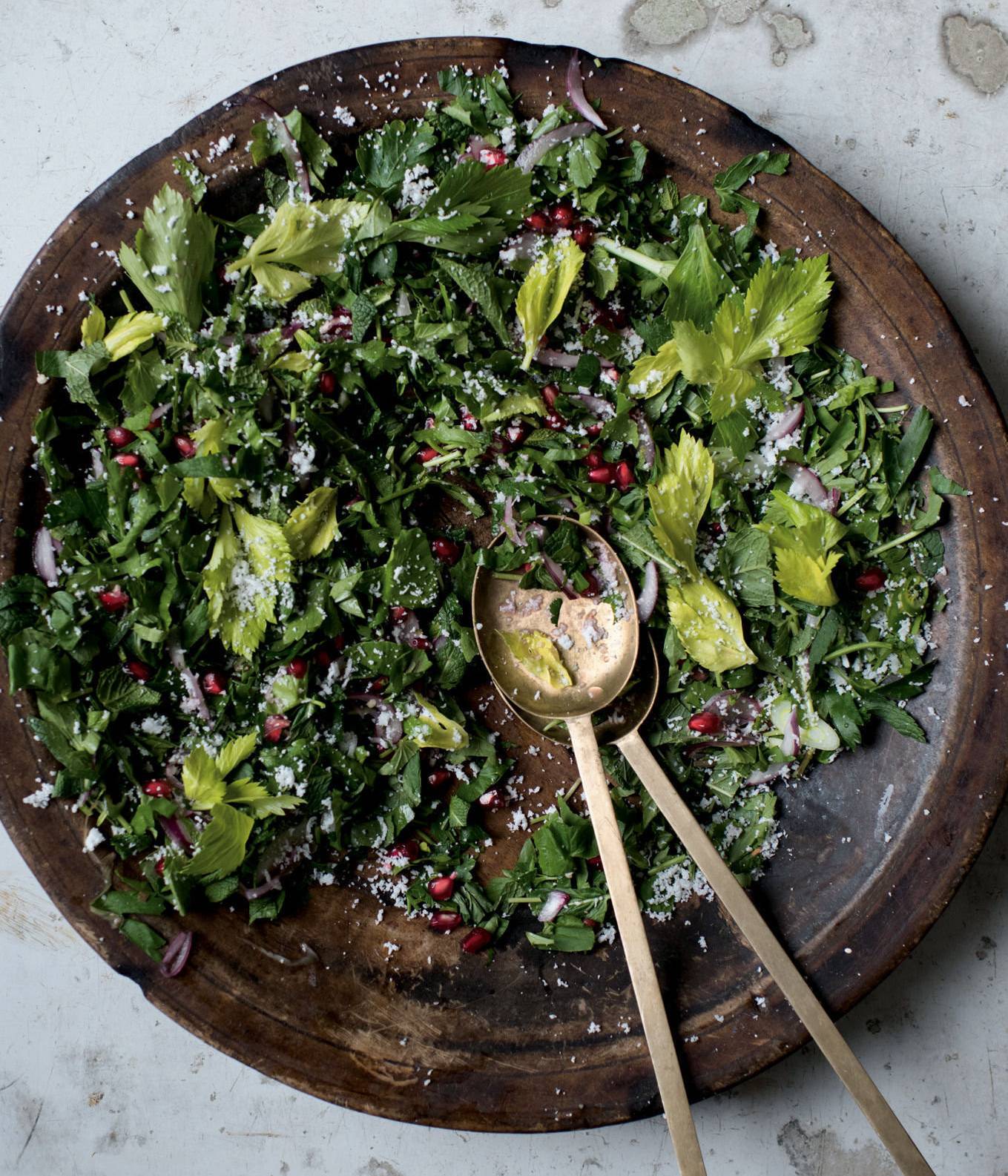
Emily's egg hopper street food stall is on hiatus, but she runs supper clubs and pop-ups and dreams of running her own restaurant. "I'm always cooking, I feel my most relaxed when I'm cooking - it really calms me down," she says. "I put all my creativity into food. It's a mindful thing, it's very artistic and creative. All the colours and textures, it's how I express myself."
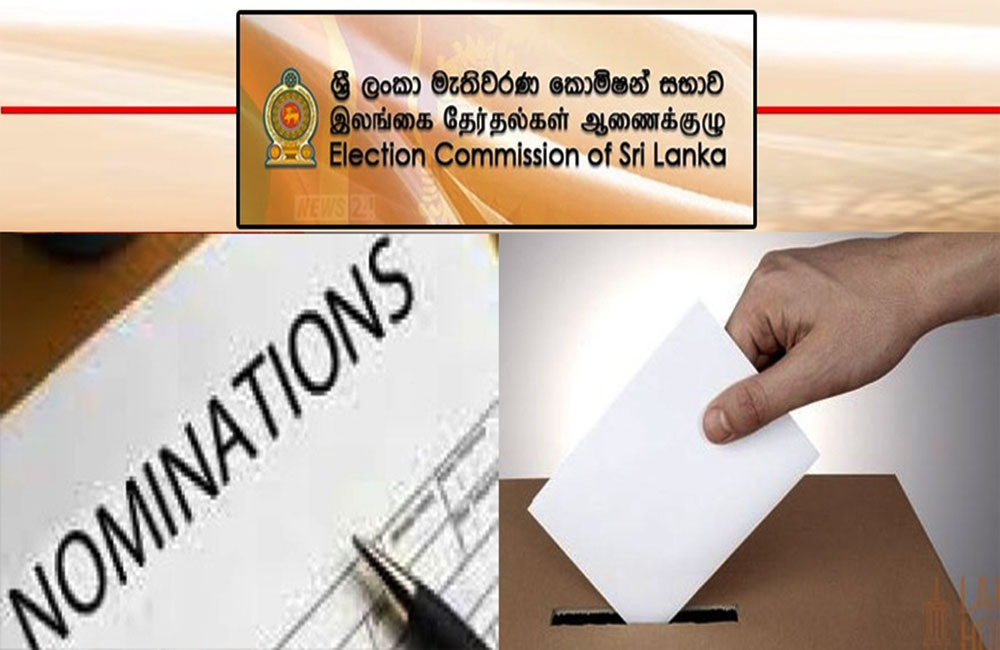
Nomination submission ends today
The time given to submit nominations for the upcoming local government polls ends today (21).
Meanwhile, the time given for parties and independent groups to submit surety for the 248 local governments ended yesterday (20). At its conclusion, 1652 parties including independent groups had submitted surety money the Election commission said.
The upcoming mini polls are set to be held on February 10 with the related gazette to be released on December 26.
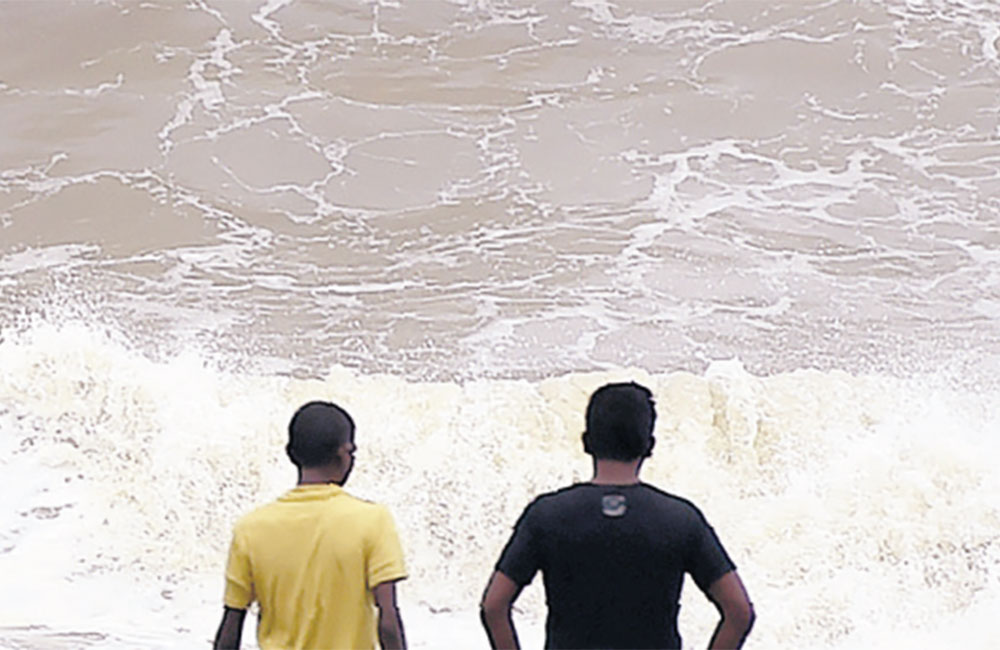
Text messages can help save lives in Sri Lanka
Storm warning strategy
Sri Lanka needs to improve its early warning system as the island nation is hit by a growing number of natural disasters caused by wild weather linked to climate change, experts said.
Since it was set up in the aftermath of the 2004 tsunami, which killed 30,000 people alone, Sri Lanka’s government-run early warning system has saved many lives.
However, on several occasions – including in 2011, 2012 and 2016 – Sri Lankans have found themselves facing storms with little warning, according to survivors’ accounts.
On the night of November 29, when Cyclone Ockhi hit, government warnings were issued at 3 pm and again at 8 pm, officials said.
But, Ajith Dias, an office worker in Colombo, said he started receiving warnings that evening on Facebook of a brewing storm nearing Sri Lanka’s southern coast.
“It was Wednesday early evening, it was getting dark and cloudy. But there was no (government) warning, at least no warning that I received,” Dias said.
He had one question for the government’s Disaster Management Center (DMC) and other public weather officials: “If Facebook users knew of a storm coming, how come you guys could not send out a proper warning?”
Sri Lankan disaster officials say early warnings are being issued – but may not be reaching everyone.
Pradeep Kodippili, Disaster Management Centre assistant director, said the disaster agency did not send the warning directly to the public through text messages or social media networks.
“As soon as we got the warning from the Meteorological Department, we sent it out to our subscriber base of media, police, (military) and other networks,” he said.
“A strategic change needs to take place very soon,” said Jagath Abeysinghe, president of the Sri Lanka Red Cross Society, which has more than 6,500 volunteers and trained staff who help with emergency and rescue services.
“With climate change, we know the weather is going to get worse and in return disasters like floods, cyclones (and) storms are going to increase, and not just increase but increase (in) intensity as well, Abeysinghe said.
“So it’s vital that we take the step towards (better) early warning for these disasters,” he said.
Sri Lanka’s Red Cross says the country has a robust system of alerts and interventions once a disaster begins to occur, but is poorly equipped to send out mass early warnings.
The country’s 25 million registered mobile phone users can receive government alerts directly once a disaster has begun, and government units under the disaster authority are tasked with early relief operations.
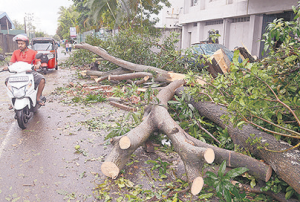 commuters drive past branches of a fallen tree
commuters drive past branches of a fallen tree
But no such mechanisms have yet been put in place to get early warnings sent directly to communities before a crisis hits.
Abeysinghe said that there is an over-reliance on using military, police, media and other public networks to send out warnings rather than setting up a system that will send messages directly to vulnerable communities.
Mobile phone companies should be required to take part in such systems when they are granted operating licenses, he said.
Trained experts could also send alerts directly via Facebook and Twitter, he added.
Kodippili said the change is one the country’s disaster agency will consider.
“That is something that we are looking at,” he said.
(Reuters)
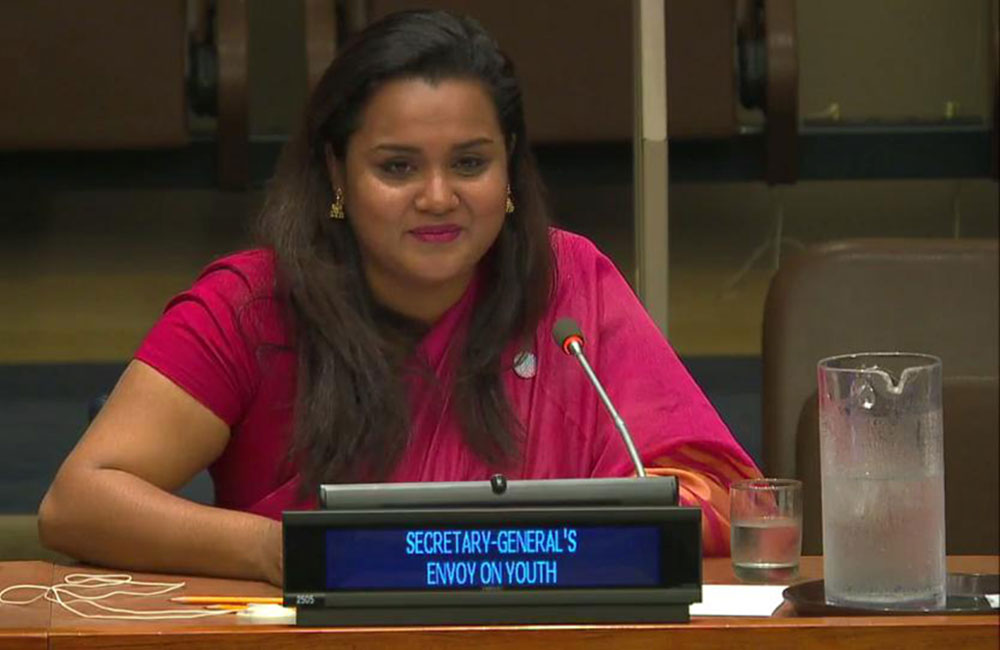
"Youth are not just the leaders of tomorrow, they are the champions of today" - UN Envoy on Youth
Mogadishu – What’s a 27-year-old Sri Lankan woman doing in the middle of Somalia’s capital of Mogadishu, a city rebuilding after many years of chaos and civil war?
In the case of Jayathma Wickramanayake, she’s doing her job.
Ms. Wickramanayake is the United Nations Secretary-General’s Envoy on Youth, charged with addressing the needs and rights of young people, and bringing the work of the world body closer to them – especially relevant tasks for Somalia, where young people under the age of 30 make up over two-thirds of the estimated population of over 12 million people.
“Youth are not just the leaders of tomorrow, they are the champions of today. It’s important that I get out of UN Headquarters to hear first-hand their concerns – including in a place like Somalia, where youth have gone through so much and are still facing structural and institutional barriers to greater participation due to their age -- and bring those concerns to the attention of the government, policy-makers and our UN teams on the ground,” she said about her visit, her first trip to an African country since she was appointed earlier this year.
Ms. Wickramanayake spent three days in the Somali capital engaged in a wide range of activities, including her participation in the second Somali National Youth Conference, a gathering of hundreds of youth representatives from all over the country that witnessed the launch of the Federal Government’s National Youth Policy on the opening day of the forum on 17 December.
“I’m here in Somalia to reassure the support of the United Nations to the Federal Ministry of Youth and Sports, state ministries and the young people of Somalia,” the UN envoy said in her remarks to the conference. “The United Nations will always be with them in this journey of implementing their youth policy.”
Her visit to the Horn of Africa country is focusing renewed attention on issues of concern to young Somalis, including unemployment, illegal migration, insecurity and violent extremism.
The recently adopted National Youth Policy is aiming to address these challenges by removing institutional barriers to youth development. Ms. Wickramanayake urged young Somalis to pursue their goals and overcome the obstacles facing them.
“Time and time again, the young people of Somalia have proven to the world that they are resilient, that they have perseverance and they have the courage to come out of the pressing issues, challenges in their societies, in their communities,” she stated during her address.
The UN envoy also expressed sympathy with victims of the 14 October bomb attack in Mogadishu that claimed more than 500 lives, and she lauded humanitarian assistance initiatives by youth in support of the victims. She also urged young Somalis to use positive means to resolve their problems.
“The right to participation is the right of all young people,” she said. “We should keep demanding that space and when that space is there, we should make good use of that opportunity and make sure that our priorities and concerns are well reflected.” Ms. Wickramanayake’s background makes her particularly well-suited to address the concerns of Somali youth. Prior to her appointment as the Secretary-General’s youth envoy, she was heavily involved in youth-related activities, including the launch of a movement for greater political and civic engagement of young people in her native Sri Lanka – a country which has suffered armed conflict and natural disasters in the recent past.
In her current role, she is expanding the UN’s engagement with youth and its advocacy efforts in the areas of sustainable development, human rights, peace and security and humanitarian action. “For us young people, peace is broader,” she said. “Peace is bigger. Peace is not just living without conflict. Peace is development, peace is being able to freely express ourselves. Peace is everything we do in our day-to-day lives and being able to do that without being restricted.”
In her closing remarks at the Somali National Youth Conference on Tuesday, the envoy shared three main findings from her stay in Mogadishu. Ms. Wickramanayake highlighted the unity demonstrated by the youth participants who came from all across the country, the fact that young people showed themselves to be the real peace-builders needed for Somalia’s future, and the strong desires of young Somalis to connect and share experiences with other youth from around the globe.
Describing the country’s young people as its “greatest asset,” she reassured the participants and the Somali Government of the world body’s ongoing support to ensure a brighter future for the country’s youth.
During her visit, the UN envoy’s other activities included meeting with a number of senior government officials, including Prime Minister Hassan Ali Khaire, the Minister of Youth and Sport, Khadijah Mohammed Diriye and the Mayor of Mogadishu, Thabit Mohamed Abdi, as well as representatives of civil society, and senior UN officials.
She also met with a diverse range of young Somalis, including representatives of youth organizations and networks, the members of the newly established National Youth Council, representatives of women’s groups, and entrepreneurs participating in an innovation workshop supported by the UN Development Programme (UNDP).
PIC : UN

Sri Lanka GDP Growth To Remain Sluggish: Capital Economics
With the twin drags of tight monetary and fiscal policy, Sri Lanka's growth is set to remain sluggish, Alex Holmes, an economist at Capital Economics, said.
The economy grew 3.3 percent in the third quarter, slower than the 4 percent expansion in the preceding period, the Department of Census and Statistics reported on December 15.
The slowdown in the third quarter was driven by the poor performance of industry, the economist observed.
The industrial sector expanded only 1.9 percent after a 5.2 percent growth in the second quarter.
The volatility of Sri Lanka's GDP series raises serious questions over their reliability.
"Looking past the problematic GDP data, the overall picture is one of a weak economy that has little chance of seeing a meaningful recovery anytime soon," Holmes pointed out.
Looking ahead, one point is that fiscal policy will remain a drag on growth as the government attempts to reduce its fiscal deficit to 3.5 percent of GDP by 2020, from 5.4 percent in 2016, under the terms of its $1.5 billion IMF loan agreement.
"Interest rates were last raised in March and although we don't expect any further hikes, cuts are unlikely," Capital Economics said.
Therefore, monetary policy is set to remain tight, too, the economist added.
Admittedly, inflation slowed to 7.8 percent in November from 7.8 percent in October and should fall further next year.
However, credit growth is still on the high side and Sri Lanka needs to sure up its currency in the face of its vulnerable external position, the economist said.
On a more positive note, the agricultural sector should rebound over the coming quarters.
Besides this, the strong external environment should also help to provide some support to the economy.
"On balance, while GDP growth should pick up a little next year, with the twin drags of tight monetary and fiscal policy, it is set to remain sluggish - we expect an underwhelming 4.5 percent y/y expansion in 2018," the economist said.
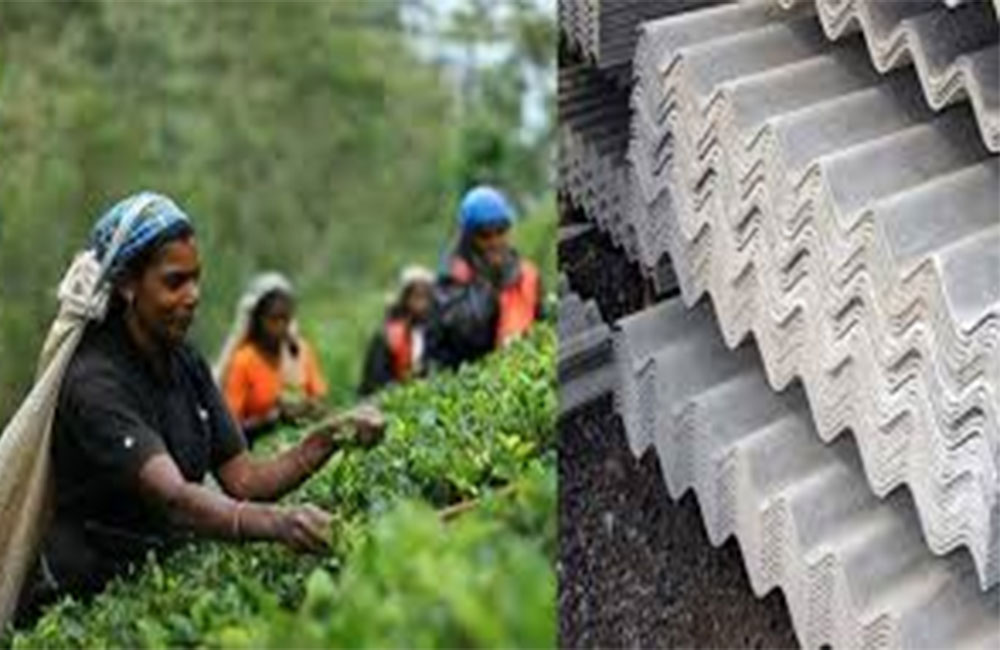
Asbestos ban which led to tea export crisis lifted
The government has decided to temporarily halt the imposed ban on Asbestos sales in the country. According to sources, the decision was made following a lengthy discussion held during the cabinet meeting yesterday (19).
Minister Navin Dissanayake is said to have expressed his views regarding the quality of the asbestos being imported from Russia at the meeting between Cabinet Minister. Based on these opinions the cabinet is said to have decided to postpone the ban on Asbestos which was to take effect from January 2018.
The government in 2016 had decided to ban all asbestos-related products in the country by 2024.
Meanwhile, it was also decided to deploy a special team to Russia. The team will report back on the quality of asbestos being imported from Russia sources claim. The team will comprise of officers from the Ministry of Science and Technology who will also present the cabinet with a health study report.
Tea and Asbestos investigation in Russia
Accordingly, two teams comprising of specialists attached to the government is set to visit Russia shortly where one team will hold discussions on the ban imposed by Russia on Sri Lankan agricultural products while the other team will look into the quality of asbestos sheets.
Speaking to ISIS news Sri Lankan Ambassador to Russia Dr Saman Weerasinghe said the team from Sri Lanka will visit the country on December 24 to observe the quality of Asbestos produced there on a special invitation from the Russian officials.
He also maintained that he held discussions yesterday (19) with the Deputy Minister of Agriculture in Russia and officials in this regard. The invitation was made at this meeting he said.
According to Russian officials, Russian manufactured Asbestos is not harmful and the visit will give the Sri Lankan team a better insight into its quality and manufacturing process the Ambassador further added.
Tit for Tat?
The ban on tea exports from Sri Lanka to Russia took effect on December 18 while former Ambassador to Russia during the Rajapaksa regime Udayanga Weeratunga claimed the ban on tea had been a tit for tat move by the Russians due to the ban on asbestos products in Sri Lanka.
The ban on asbestos was imposed according to a policy of President Maithripala Sirisena with the country set to ban asbestos sheets fully by 2020 according to his vision.
The basis for the ban by the government and the President has been presented as its cancer-causing nature. Sri Lanka imports asbestos mainly from Russia.
However, sources say Russian Ambassador to Sri Lanka Alexander Karchava had expressed his displeasure at the baseless ban imposed.
Problem can be resolved
However, Ambassador Dr Weerasinghe claims that there is no connection between the two bans adding that the ban on tea exports can be resolved shortly.
The team to discuss this ban imposed will leave to Russia today (20) he said. The team will comprise of officers from the Tea Board, Tea Research Center and Tea Exporters Association.
The dates of the discussion are yet to be set however he said it will most probably be held on Friday he added.
No issue with other countries
Meanwhile President of the Tea Exporters Association Jayantha Karunaratne said while tea exports to Russia have halted, the exports to other countries are continuing as usual. ]
He also went on to say the beetle found in the tea have not been found in Sri Lanka for over 10 years and that Russian officials have informed the Association that it is a incidental occurrence.
Both parties are interested in resolving the issue soon he said.
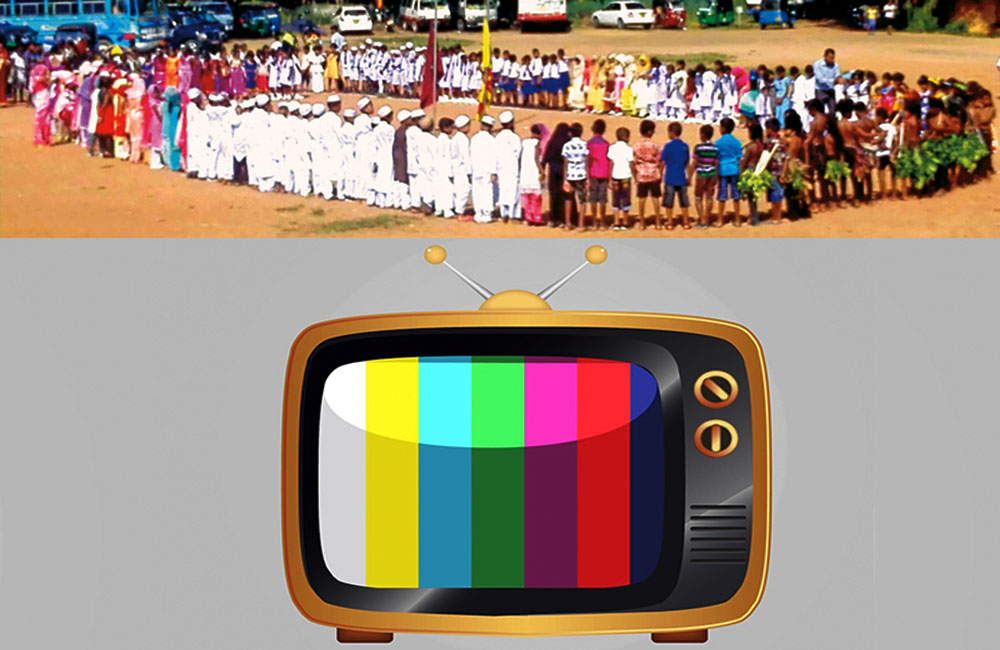
Television Channel for 'National Reconciliation'
A new television channel for the Tamil-speaking community in the North and the East with the intention of fostering reconciliation received Cabinet approval yesterday. The government has decided to name this new channel as the 'Channel of Reconciliation'.
Cabinet approval was also given to acquire a land in Chavakachcheri, Northern Province to construct a television studio for the new channel.
Cabinet co-spokesman Minister Rajitha Senaratne stated that a separate frequency has already been allocated for the new television service and that the technical equipment for the new channel has already been ordered.
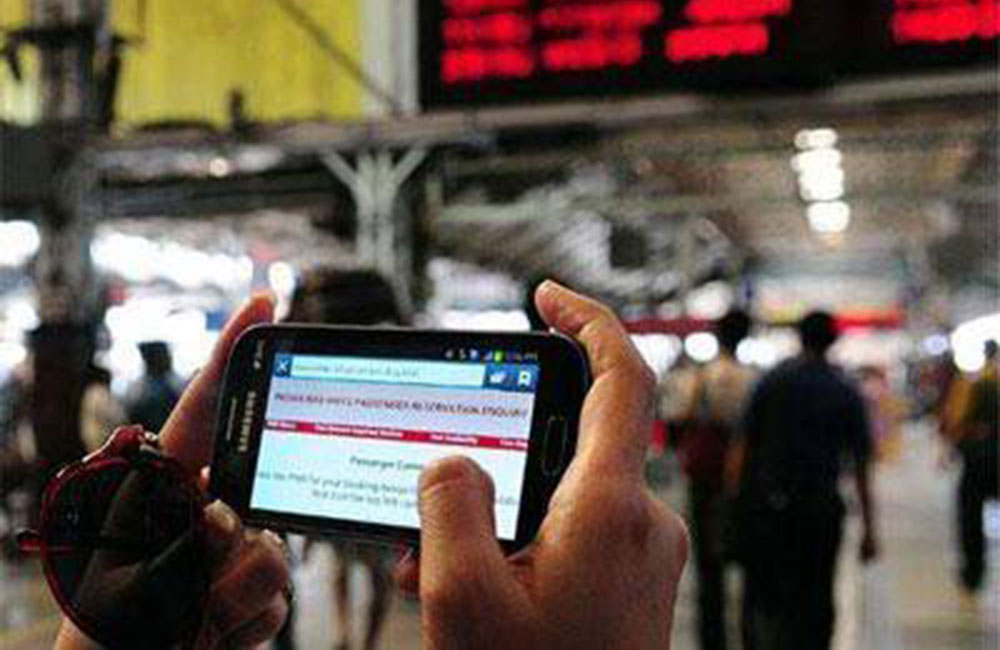
SLT and Fontech to provide international Wi-Fi services to users
Sri Lanka Telecom has signed a deal with Fon that will enable the telco to deliver WiFi connectivity to their subscriber base. In addition to choosing Fontech’s carrier WiFi solution to deliver WiFi access locally, SLT Group has signed a roaming agreement with Fon to grant their users international access to WiFi in over 21 million locations globally.
With Fon's carrier WiFi solution, the telco said that it will be able to integrate Fontech technology into more than six router models equipped with FTTH, ADSL and LTE technologies with witch SLT will be able to provide customers with many different access alternatives, including captive portal, WISPr seamless connectivity, and EAP.
"Not only will Fontech’s technology complement our existing services in Sri Lanka through delivering seamless WiFi outside of the home, but we are also delighted to offer our customers the convenience of being able to access millions of Fon hotspots globally,” said Dileepa Wijesundera, CEO of SLT Group.
The service is currently being deployed and integrated, and will be launched in Q1 2018, targeting hundreds of thousands of CPEs.
"While Fon continues to specialize in the aggregation of WiFi networks, ensuring that the world’s largest community network continues to grow, Fontech is dedicated to developing the technology that operates the service," said Alex Puregger, CEO of Fon.
Fon has recently deployed Wi-Fi services 800,000 locations along with Malaysia, Hong Kong, South Korea, Japan and China and with new roaming agreements with operators like Telekom Malaysia, Korea Telecom, and Softbank, Fon claims to include almost three million hotspots in the Asia-Pacific region.
Radhika Parashar
Economic Times
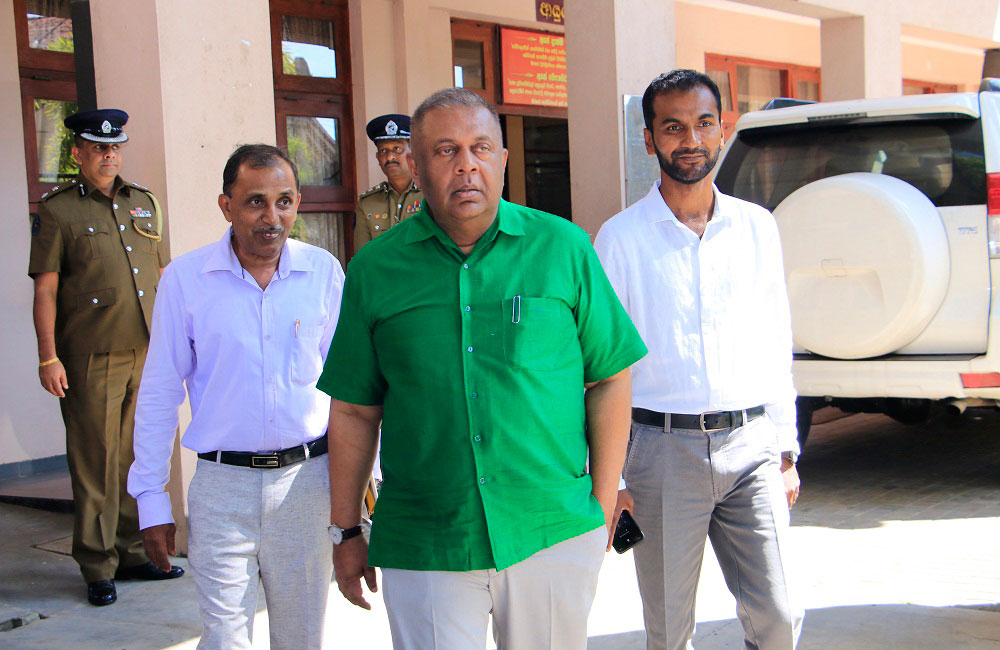
Join the UNP to develop rural areas - Mangala
Finance and Media Minister Mangala Samaraweera called on all Sri Lankans to join with the United National Party (UNP) to strengthen the government to develop the nation.
“At a time that the government has allocated more funds than that was ever allocated for the education and health sectors and Rs. 38 billion for the development of rural roads next year, we invite the constituents of Matara and all Sri Lankans to join the United National Party (UNP) to strengthen the government to develop our nation,”he said.
“As much as we won over our nation, within the past three years our government has been able to win the goodwill of other nations in the world and look forward to winning the support of the rural community as well. I call upon all members of the Sri Lanka Freedom Party not to allow elements that made this country a center for commission agents and nurtured the white van culture to suppress the media to raise their heads again” On being asked about the crisis faced by the tea industry the minister said that he had had discussions with the Russian Ambassador the previous day and was confident that the crisis will be resolved soon.
Source : Daily News
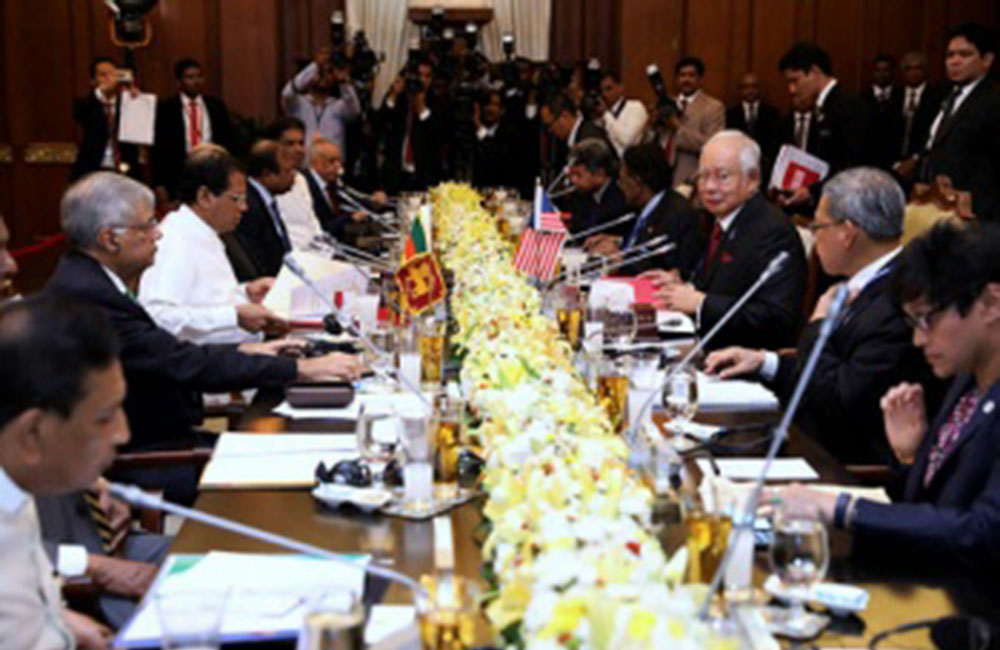
FTA with Sri Lanka will facilitate exports of Malaysian products & services
Products and services from Malaysian companies are expected to easily penetrate the market in Sri Lanka if both countries are able to forge a Free Trade Agreement (FTA).
Prime Minister Datuk Seri Najib Abdul Razak said among the main products Malaysia exports to Sri Lanka is palm oil, but it is subject to several specific taxes, and if the FTA were to be implemented, the taxation system in both countries would be reviewed.
Najib said this to the Malaysian media today after holding a meeting with Sri Lanka President, Maithripala Sirisena, and attending a roundtable negotiation between the government and private sector of both countries.
Najib said Malaysia's exports to Sri Lanka for the period from January to September 2017 amounted to US$499.1 billion (about RM2 trillion), an increase of 13.6% compared with the same period last year.
Malaysia's exports to Sri Lanka is 10 times the value of Sri Lanka's exports to Malaysia, and during the negotiations, Sri Lanka requested Malaysia to import more of its products.
"We will study the request and may look at importing products such as tea from Sri Lanka into Malaysia as the country's tea products are among the world's best, besides gemstones," he said.
Najib said during the roundtable negotiations, he had informed the participants that Malaysia had a lot of expertise including in international airport management services, highway construction and healthcare services.
"We have expertise in various fields and sectors, this is our opportunity (to participate) in the economic development in Sri Lanka," he said.
The Prime Minister said during the roundtable discussion, certain parties had shown keen interest in working with Malaysia's Digital Free Trade Zone, as Sri Lanka regarded Malaysia as the gateway to Asean and beyond, and felt that both countries could become business partners in various fields.
He said Sri Lanka also saw Malaysia's halal certification system as the best and could add value to their halal products.
The Prime Minister's three-day official visit to Sri Lanka starting Sunday marks the 60th anniversary of Malaysia-Sri Lanka diplomatic ties.
Najib's entourage is made up of International Trade and Industry Minister Datuk Seri Mustapa Mohamed, Health Minister Datuk Seri Dr S. Subaramian, Minister in the Prime Minister's Department Datuk Seri Azalina Othman Said, Deputy Foreign Minister Datuk Seri Reezal Merican Naina Merican, and Malaysia's Special Envoy on Infrastructure to India and South Asia Tun S. Samy Vellu.
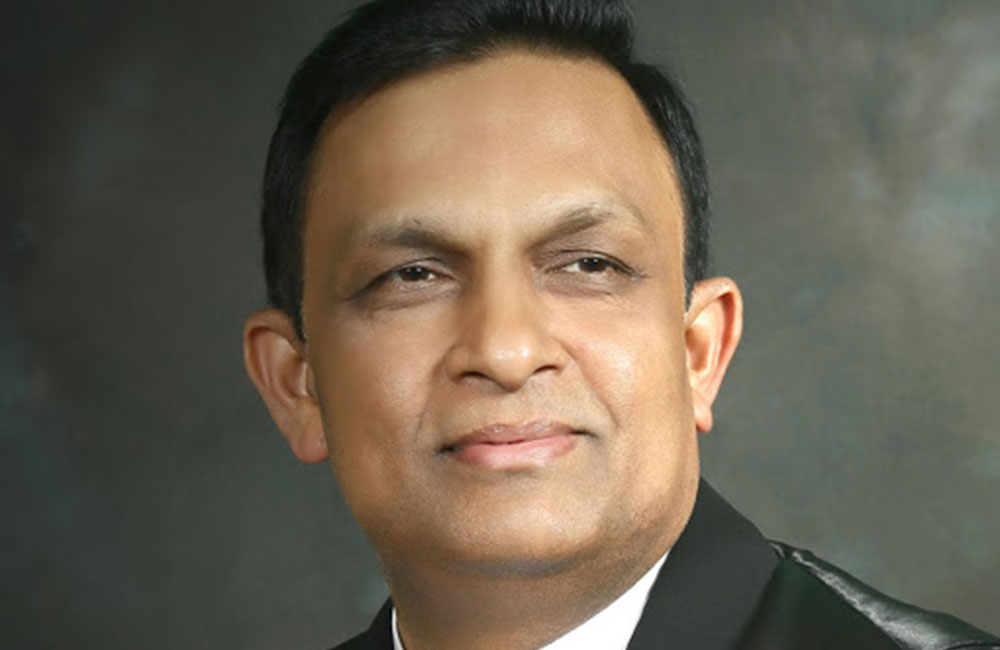
New bribery act next year
The draft new Bribery Act will be introduced in the next two months, Commission to Investigate Allegations of Bribery or Corruption (CIABOC) Director General, Sarath Jayamanne PC said.
He said that the present Bribery or Corruption Act is obsolete and some loopholes have been identified since it has been enacted in 1994. Considering these shortcomings, there is a need to introduce a new Bribery or Corruption Act to create a just society.
Launching the new CIABOC website yesterday, Jayamanna said that the draft, which is being prepared, will be open for public discussion.
“Positive, fruitful suggestions and public views are encouraged and accepted,” he said.
Once the draft is passed in Parliament, it will be the new Bribery or Corruption Act, probably from next year. Some new clauses will be added to the new draft such as the definition of entity and person. Bribes relating to private entities will also be included with the new draft. So far no foreign institutions are enlisted to the Bribery or Corruption Act, but these international entities will be included in the new draft, Jayamanna said.
In line with the web launch, the gathering drew attention on establishing a national action plan to combat corruption in Sri Lanka.
He added that people are facilitated with the new website to lodge their complaints easily. The website (www.ciaboc.gov.lk ) provides all necessary details to lodge a complaint or to get information, he said.
Complaints can be lodged through eight ways such as phoning, emailing, faxing, lodging a complaint with the website etc.
Speaking on the progress of the CIABOC Jayamanna said that 73 cases relating to bribery or corruption have been filed in courts so far this year.
However, the CIABOC has received 2,590 cases up to December 15, from January 1 this year. Of the total number (2,590) CIABOC has decided to investigate on 1,549 cases.
CIABOC Commissioner Neville Guruge said CIABOC will set up sub-offices in Kandy Anuradhapura and Matara in future.
Source : Daily News
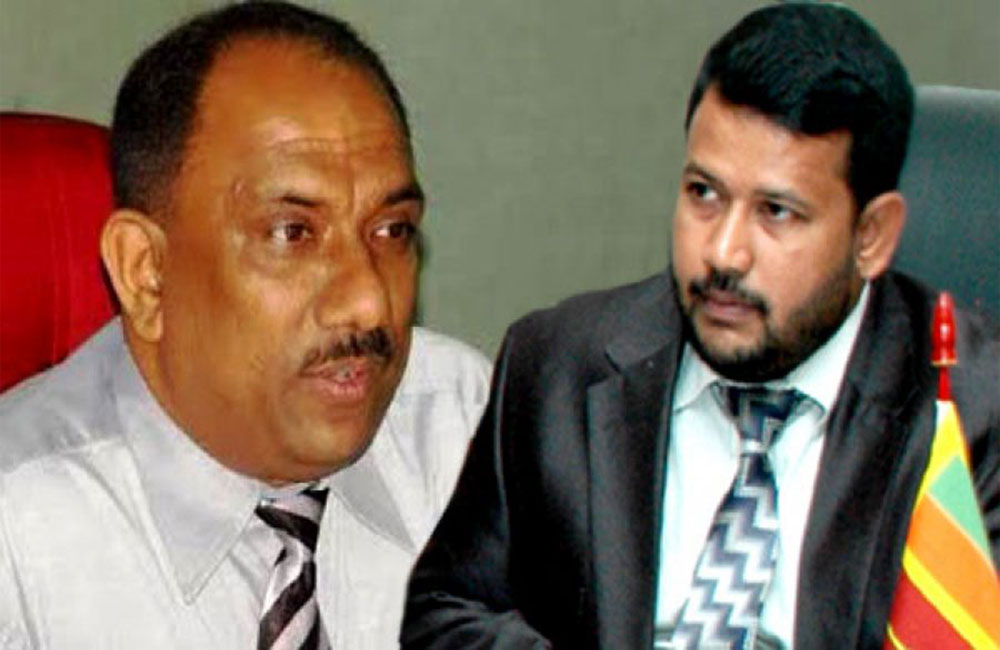
Ali-Bathiudeen alliance and Muslim politics
The Eastern Province based Muslim identitarian politics, brought to the fore by M. H. M. Ashraff, founder/leader of the Sri Lanka Muslim Congress (SLMC), has entered a new phase with the alliance between the former General Secretary of SLMC, Hasen Ali and Minister and Leader of the All Ceylon Makkal Congress (ACMC) Rishad Bathiudeen.
Currently SLMC is the dominant force in Eastern (Ampara) based Muslim politics along with United People's Freedom Alliance's (UPFA) A. L. M. Athaullah. SLMC has hitherto been acknowledged as the undisputed representative of eastern Muslims. However, the current SLMC leader, Rauff Hakeem, hailing from Kandy (Kandiyaan), is rapidly losing support among the Muslims of Ampara (Mattayan).
Athaullah who has considerable power in Akkaraipattu, does not tolerate opposition to his authority and he is attempting to ensure that his son is his successor. He has also joined President Maithripala Sirisena. M. L. A. M. Hizbullah, leader of the Kattankudi Muslims is also supporting the President and President Sirisena has appointed over 10 Muslims organizers to Ampara.
Bathiudeen's Eastern arrival
However, during the 2015 General Election, Bathiudeen, 'invaded' Ampara and his ACMC obtained 33, 000 votes (10%), 18% votes in Kalmunai, 27% from Samanthurai and 10% from Pottuvil. Although they did not obtain a seat in Parliament, ACMC indicated they also have a considerable presence in Ampara. With the alliance with Ali, these numbers are sure to swell.
Bathiudeen became the figurehead of Muslim nationalist/identitarian politics during the 2015 General Election. When he was criticized by Sinhala nationalist/identitarian movement, Bathiudeen used that to increase his appeal among the Muslims. He sure is a great marketer and he is always present whenever there is even a slightest issue between the Sinhala and Muslim communities. Within few years he has become the 'other' of the Sinhala nationalist/identitarian movement as well as of the Tamil National Alliance (TNA). As the animosity with the Sinhala and Tamil nationalist/identitarian movements becomes greater, Bathiudeen's popularity among the Muslims also increases.
Ali on the other hand is perceived as a gentleman politician, in both Colombo and the East. Although he has always entered Parliament through the national list, we all saw his abilities as an organizer during the 2015 Presidential Election.
In August 2015, many expected that the two national lists seats obtained by the SLMC would go to then Chairman of the SLMC, Basheer Segu Dawood and Secretary, Ali. However the SLMC leader appointed M.H.M. Salman and his brother A.R.A. Hafeez (who resigned in 2016 and M.S. Thawfeeq was appointed to the position).
Dawood and Ali, following Udaya Gammanpila, formulated a Pivithuru SLMC. This later morphed into United Peace Alliance. Mansoor A. Cader was appointed General Secretary of Sri Lanka Muslim Congress (SLMC) in place of Ali. Hakeem promised, before God, that he will remove Salman from the national list slot and give the position to Ali. However since this did not materialize, Ali formed United People's Alliance (UPA) with Bathiudeen.
Muslim politics in the North
Bathiudeen has managed to assume full control of the Northern Province, using the United National Party (UNP) as his cat's paw.
It is now obvious that 90% of the candidates contesting for the coming Local Government (LG) elections from the UNP led alliance will be Bathiudeen's acolytes.
Bathiudeen will now contest the Eastern Province separately and the SLMC has no other option but to join the UNP. Since the UNP does not have strong candidates in the east, the SLMC will have a significant bargaining power. The UNP list for the Northern Province will be created by Bathiudeen and contesting with the UNP is beneficial for him because the UNP can attract some Tamil votes in the North, a feat beyond Bathiudeen.
Plight of Sinhala & Tamil candidates
Bathiudeen will also have a significant say in selecting UNP's Sinhala and Tamil candidates in the North as well and anyone who wants nominations from the UNP must become a supporter of Bathiudeen. Or they must join the TNA, which is what has already happened in Thunukkai and Manthei. Bathiudeen is also responsible for selecting candidates for the seat for the Sinhalese in Vavuniya and thus the Sinhalese candidates who were to contest from the UNP are now planning to contest independently.
Kalmunai MC is the bastion of Muslim politics and it comprises of Kalmunai Tamil, Kalmunai Muslim, Karativu and Saindamaradu.
As Saindamaradu Pradeshiya Sabha has not been established, Chairman of the Jumma Mosque Y.M. Hanifa is to lead an independent group. Votes in Kalmunai are divided between SLMC, Ali - Bathiudeen alliance, SLFP and SLPP and will become further complicated by the Saindamaradu factor. This will also ensure that the number of votes SLMC gets will go below 50% for the first time.
Ampara has always had powerful Muslim politicians who held positions in the Chandrika - Mahinda administrations and they have artificially created local government bodies in the East. This has lead to anomalies. For example, one can walk from Karativu Divisional Secretariat office to Saindamaradu Divisional Secretariat office. And if a separate local council is established for Saindamaradu, the Tamils who live there will not be represented.There is also an idea that Muslims should only vote for a person named by the mosque in Maliyakkadu, which belongs to Karativu.
Unlike Muslim politics in Colombo and Kandy, Muslim politics in the East is not conscious and candidates who can either spend money or toe the racial line have a clear advantage. This dynamic will reach a new level this time.
The Hasen Ali - Rishad Bathiudeen alliance will clearly change the political dynamic in Ampara. However it is not still clear how it will affect Muslim politics at National level.
The writer, Keerthi Tennakoon is the Executive Director of Campaign for Free and Fair Elections (CaFFE).
Page 503 of 510